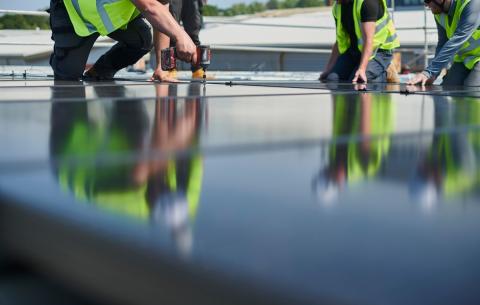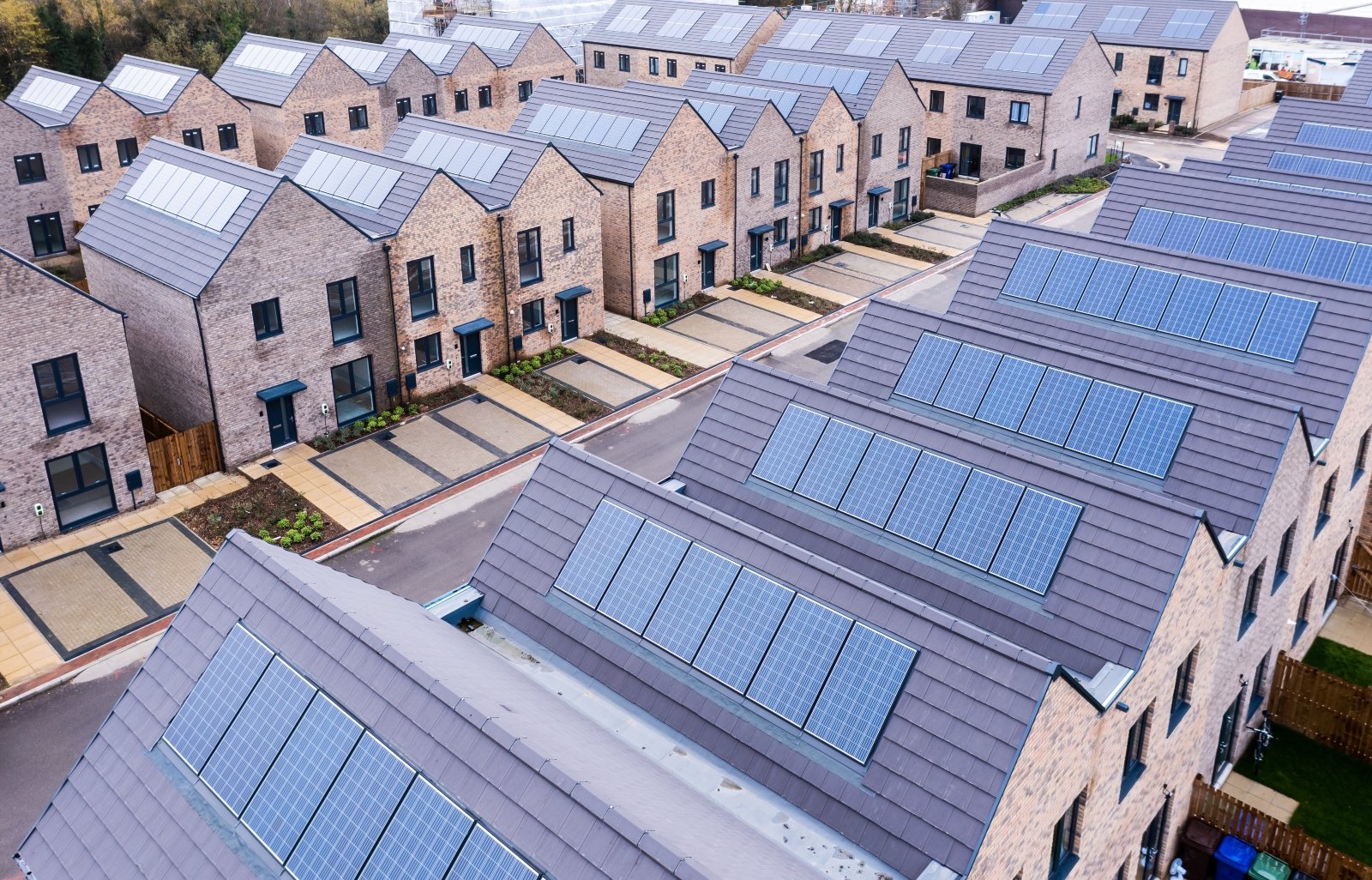Are solar panels the future of the electrical industry?
In short, yes. Thanks to increasing demands for renewable energy and solar technology becoming more effective, solar panels are widely seen as the future of the electrical industry. Here’s why:
Renewable energy resource: unlike fossil fuels, photovoltaic (PV) or solar power provides, cleaner renewable energy
More affordable: the falling price of solar panels is making them more affordable and accessible for homeowners and landlords to make the switch to renewable energy
Advancing technology: the continuous development of solar technology is constantly boosting performance and lifespan of solar PV panels
Government incentives: energy-saving policies and financial support are helping to accelerate the adoption of solar panels
Self-sufficiency: solar technology gives homes and businesses more control over their energy supply
The benefits of solar panels and solar energy
Installing solar PV panels offer several benefits:
Environmentally friendly: PV cells convert solar energy into electricity and does not generate greenhouse gas emissions when used
Reduced energy bills: electricity usage costs are reduced once the solar panels are up and running
Higher property values: homes with solar panel installations typically sell for more
Less maintenance: solar panels systems have fewer moving parts and require minimal care
Although the initial cost of solar panels may be high (typically ranging from £4,000-£10,000), they will provide long-term benefits for the property owner.
The Growth of Solar Panels
Globally, the solar panel market is growing dramatically. According to the International Energy Agency (IEA), solar panels are expected to account for 80% of the growth in global renewable capacity between 2024 and 2030. By the end of the decade, solar PV is poised to become the biggest renewable source.
The growth is being driven by falling costs in solar panel installations, advancing technologies and government incentives. Additionally, modern solar panels have a long lifespan. They typically last 25–30 years, which offers a great return on investment.
This growth is also encouraging recurring work for electricians as solar PV systems include inverters and may even have batteries, which may require maintenance and upgrades.
Government incentives & market outlook
To help homes and businesses make the switch to renewable energy, the UK government has introduced several tax incentives such as a zero-percent VAT rate on solar panel installations, and grants to encourage solar panel installation.
Schemes such as the Smart Export Guarantee (SEG) allow homeowners to earn money on any surplus energy they export back to the grid. Solar panels are also included in the Energy Company Obligation 4 (ECO4) scheme, which helps lower-income households install energy-efficient solutions.
These incentives, coupled with growing demand from the public is leading to a healthy market outlook. Solar Power Portal predicts an increase of 50% year-on-year, following rapid growth in the latter half of 2024.
So, what does this all mean for professional electricians working on homes? Growing demand for solar panels means more installations and more electricians will need to be trained in solar panel installation.
What qualifications do you need to install solar panels?

Although a standard electrician will understand electrical systems, they may benefit from specialised knowledge of solar technology. Qualified electricians will need specific training and certification to carry out solar panel installation in the UK correctly and safely.
Following an NVQ Level 2 or 3 Diploma in Electrical Installations, or an NVQ Level 3 in Electrical or Electro-technical Services, electricians typically need:
A solar PV specialisation course – such as a BPEC Solar Photovoltaics (PV) Qualification or City & Guilds Solar Panel Training
An MCS (Microgeneration Certification Scheme) certificate – this is to prove you can install systems that are eligible for government incentives such as SEG.
Some training providers are also now offering specific courses in installing solar panels, so future electricians have the required skillset.
What materials do you need for solar panel installation?
Depending on the system you are installing, solar panel installations typically include several core components:
Photovoltaic (PV) panels
An inverter (which converts DC to AC)
Optional battery storage
Mounting equipment
Electrical cable and connectors
As the electrical industry rapidly moves towards solar energy generation, it is vital to consider the quality of this supporting structure – and cables should not be overlooked.
Installing high quality cable in solar PV installations is essential to ensure systems performance. The cables should be UV-resistant, have a high temperature tolerance and robust mechanical strength to withstand the harsh environmental conditions.
As well as helping to avoid failures and costly replacements, a robust, flexible cable can also help boost the efficiency of the system. The solar cables you use should also have third-party approval to indicate the cable meets stringent standards. Even if you are not making the purchasing decision, it is still worth understanding what makes a quality solar PV cable.
To ensure solar panels perform as they should and provide the benefits they are meant to, quality cables are essential. Solar panels are rapidly transforming the electrical industry and cables are the backbone of the system. Installing reliable, fully compliant cables such as those manufactured by Prysmian is essential in keeping the solar panel system operating at its highest performance.
Got any questions about solar cables? Get in touch today.



